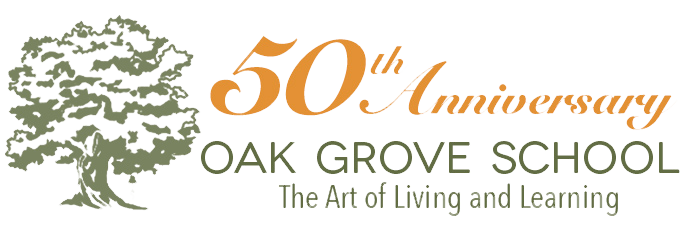By Tess S. ’22, Oak Grove Times, June 2020
The coronavirus has wreaked havoc worldwide, from social distancing to overcrowded hospitals, to over 88,000 deaths across the nation. But even in darkness, there is light, and even in the worst tragedies, there is always a bit of hope. In Ojai, California, people have started making efforts to boost people’s spirits. Driving through Ojai, one is first met with imposing construction signs reading, “Face covering required at all times.” But further in, you start to see other signs, one made out of cardstock and scraps of paper, printed in colorful lettering with words of kindness.
“No act of kindness, no matter how small, is ever wasted.”
– Aesop
Something like this may seem trivial. “That’s great,” someone may say, “Very sweet. But how can that really make a difference? How can that have any significant impact when there’s a world crisis going on?”
The Greek moral animal fabulist, Aesop, in his renowned tale, “The Lion and the Mouse,” summed up this idea in a way that even a child could understand: “No act of kindness, no matter how small, is ever wasted.” Even though these handmade signs offering words of kindness may not seem like a big deal, they may touch someone deeply in ways others may never fully know, inspiring them and setting off a positive domino effect that can start off small and become larger as it goes.
We all benefit from this kind of compassion. Robert Ingersoll, the great American orator, once said, “We rise by lifting others.” Imagine how much worse this disaster could have been if we had all started to hate each other. If it had been the one thing in an endless line of worldwide instabilities that finally led to riots. Civil unrest. Violence, if things began to escalate into an even larger worldwide disaster. Kindness may seem like the actions of someone who is not willing to consider the tragedies in life, but think where we would be without it. Think of the difference we feel, the boost in mood, when somebody simply smiles at us. There’s a quote from the Talmud that reads: “The highest form of wisdom is kindness.”
The reason for kindness being a type of intelligence was best summed up in a quote by the Buddist monk, Matthieu Ricard, where he talks about the practice for reaching a more altruistic state, ”The search for happiness is not about looking at life through rose-colored glasses or blinding oneself to the pain and imperfections of the world. Nor is happiness a state of exaltation to be perpetuated at all costs; it is the purging of the mental toxins, such as hatred and obsession, that literally poison the mind.”
In his same book, Ricard talks about a muddy pathway leading up to his house. One of his friends walked the pathway and told him how disgusting it was. Another friend walked the same pathway and told him she enjoyed hopping from stone to stone over the mud. While one person may view the world through a more negative lens, where kindness doesn’t make a difference, this doesn’t mean that this is the only way to view it, or that it is even the correct view. While for some compassion may seem like a trivial thing, in its truest sense, it makes a world of difference. And while someone may just see a cardboard sign with a platitude on it, dismissing it as a greeting card sentiment, to someone else it is the ray of hope that gets them through a worldwide tragedy.



